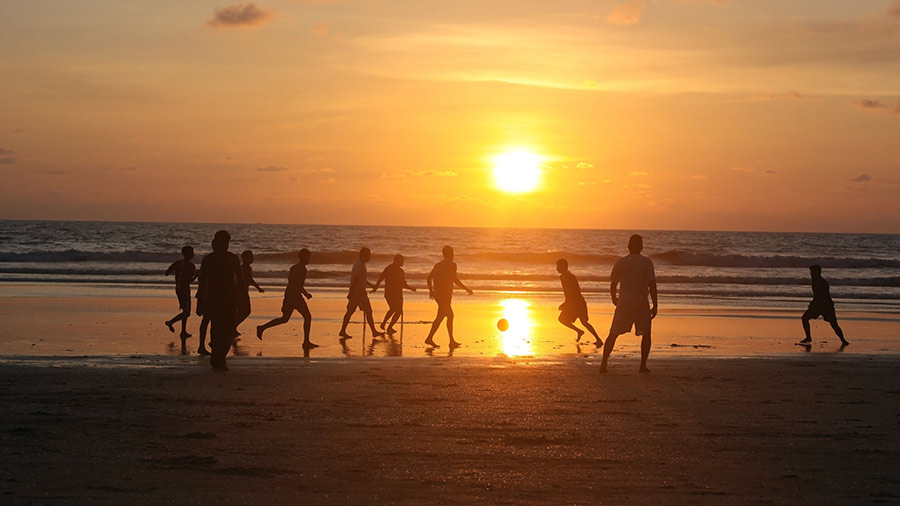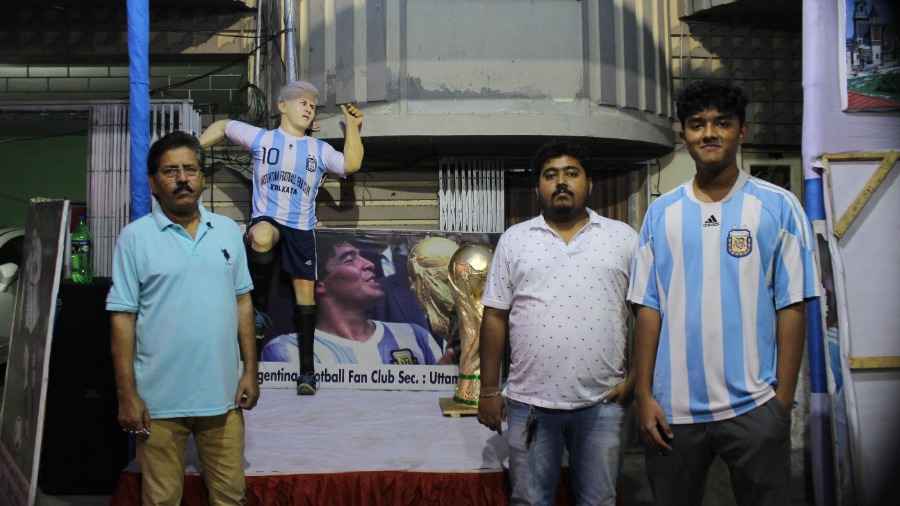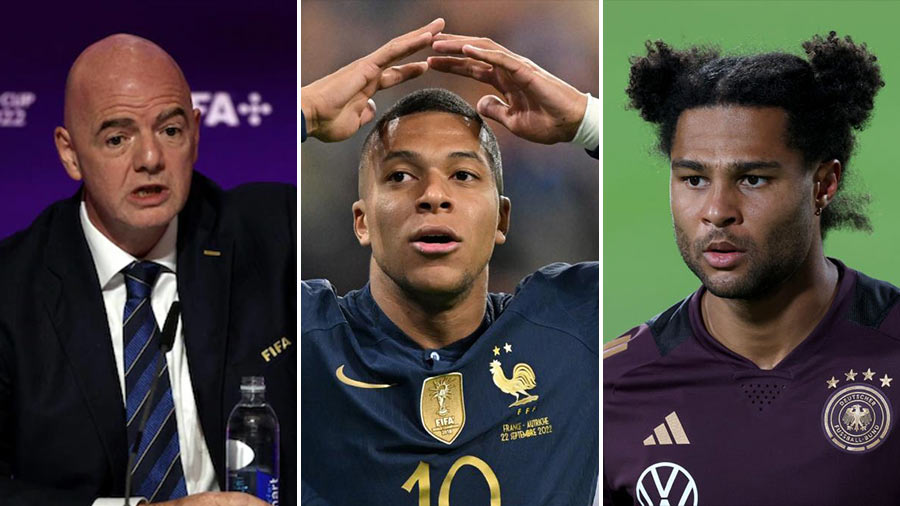“Football is like a war. One castle is here, one castle is there. I’m the guy at the gate. We have to block the attacks and save our castle,” said Ayush Dhargalkar, the 14-year-old goalkeeper of Don Bosco Tuem, based in the village of Tuem, north of the Chapora river in Goa, a significant distance away from the coastal regions that the state is traditionally known for, such as Baga, Calangute and Vagator.
The teenager was among the 300-odd students who had turned up at a programme organised by the Goa Football Development Council (GFDC) in the Don Bosco school on November 17 to promote the game. In attendance were the GFDC chairman, footballers from FC Tuem, the president of the Goa Football Association and the MLA of Mandrem.
The turnout and the promise — quality training in India and abroad for scores of kids — made Stany Lobo, the physical education teacher of the school, hopeful that in five years, football would become the dominant game in Tuem, where cricket is believed to be more popular.
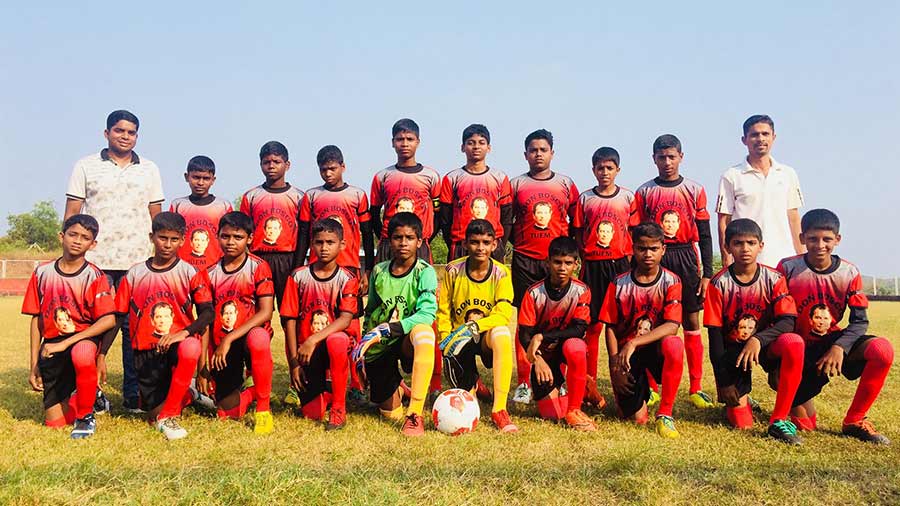
Young footballers, who are learning their craft for FC Tuem @FC Tuem/Facebook
In nearby seaside areas such as Arambol and Morjim and most other parts of Goa, football has been all-pervasive for decades. Almost every Goan I spoke to about the FIFA World Cup in Qatar struggled to curb their enthusiasm when I asked them about their favourite players and teams. The lion's share of the support is split between Portugal and Brazil (due to the colonial and linguistic heritage), while a fair few have a soft spot for Argentina. Everyone seems to want a fitting swansong for Cristiano Ronaldo, Lionel Messi and Neymar. Several are planning to throw house parties and watch the games with friends and family. Some are planning to attend screenings in Panjim and Margao.
Cup surprise in Panjim
Given the general level of engagement with the World Cup and the state’s rich footballing heritage, I expected a big-bang opening to the tournament in India’s smallest state on November 20. But the atmosphere at Panjim was unexpected. Down the Road, a dine-in that regularly screens sport matches, had muted the commentary and hosted singers instead. Bar 15 did not even have a subscription for Sport18 (the official television broadcaster of the World Cup in India), and instead played the highlights of a Manchester derby.
The Upper Room exuded a homely ambience targeted at football lovers and locals. They dimmed the lights and telecast the game on a massive screen. The manager offered complimentary pints and snacks. Yet the locals (most of whom were football fans) were more interested in ribbing each other regarding mutual friends, F1 factoids and mockumentaries than watching the game. An exception was when they spent two minutes talking about how the referee looked like Polish striker Robert Lewandowski.
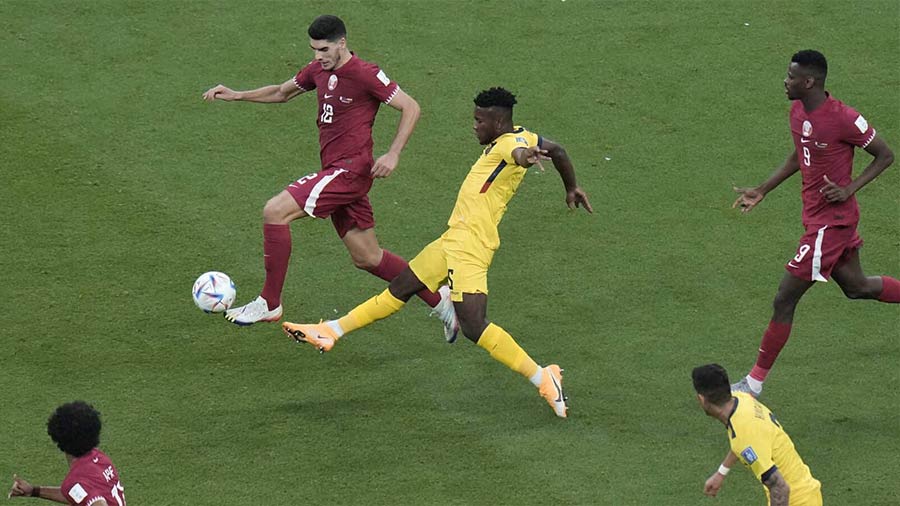
The World Cup opener between Qatar and Ecuador failed to set Goa alight FIFA
Of course, the general quality of the opening game between Qatar and Ecuador was a factor. The match was turgid. Ecuador throttled the hosts into submission. By half-time, the result was a foregone conclusion. But asking around revealed some interesting facts. Not many had come to the screening to watch the football anyway. One of them told me that during the World Cup season, his friends feel like family. Another, who had no interest in football, said that he enjoyed the community bonding the tournament fostered.
As I was about to leave, Francis Braganza, the owner, started talking to me about his business. He said that it had been two weeks since the place had opened. He went on to inform me of his plans to open a restaurant and serve food to the several offices in the building. He even showed me an under-construction room and said he was going to convert it into a banquet hall. He asked me where I was from and how my life was as a writer. There was no real reason for this conversation. He just wanted to chat.
That was when it occurred to me that World Cup screenings are largely a pretext for communities to congregate. Goans need the smallest excuse to talk and mingle, and in many ways, the World Cup provides the best one. It makes them more open to talk about their lives, loves, hobbies, ambitions and memories. Football, even for the fanatic, is a jumping-off point, a catalyst for conversation. It is not the be-all-and-end-all.
This, more than the goals and the gala, is what excites me about the World Cup in Goa. The fact that every four years the “Pearl of the Orient” becomes even more of a haven for community, contentment and, of course, the beautiful game.
